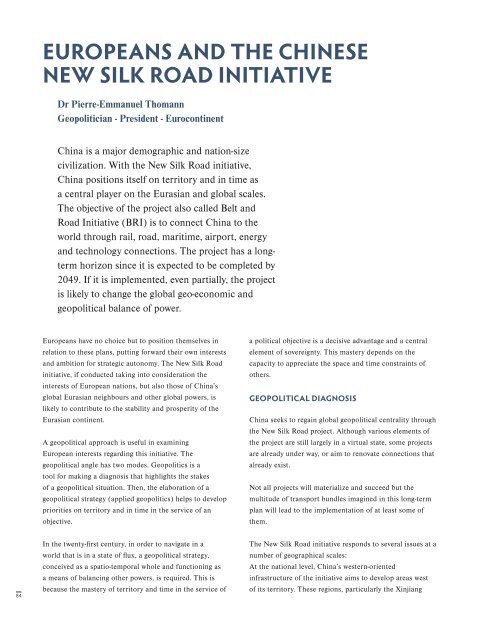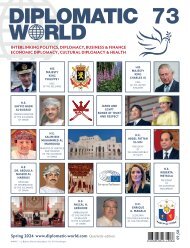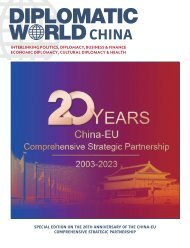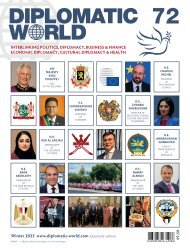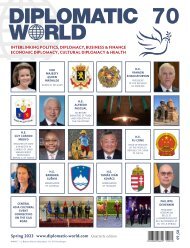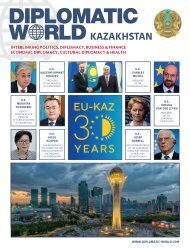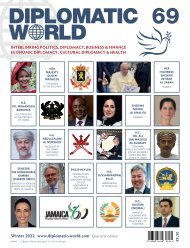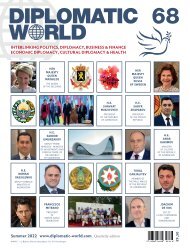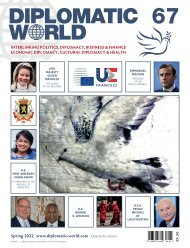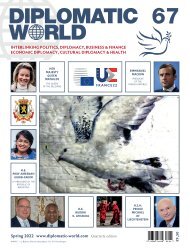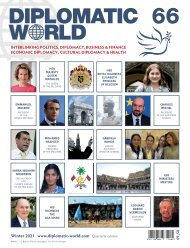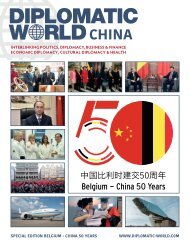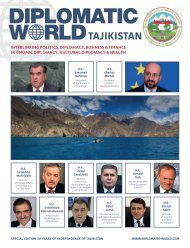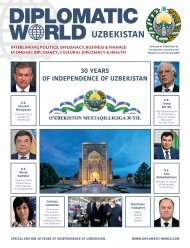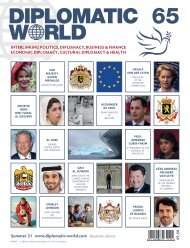Create successful ePaper yourself
Turn your PDF publications into a flip-book with our unique Google optimized e-Paper software.
EUROPEANS AND THE CHINESE<br />
NEW SILK ROAD INITIATIVE<br />
Dr Pierre-Emmanuel Thomann<br />
Geopolitician - President - Eurocontinent<br />
China is a major demographic and nation-size<br />
civilization. With the New Silk Road initiative,<br />
China positions itself on territory and in time as<br />
a central player on the Eurasian and global scales.<br />
The objective of the project also called Belt and<br />
Road Initiative (BRI) is to connect China to the<br />
world through rail, road, maritime, airport, energy<br />
and technology connections. The project has a longterm<br />
horizon since it is expected to be completed by<br />
2049. If it is implemented, even partially, the project<br />
is likely to change the global geo-economic and<br />
geopolitical balance of power.<br />
Europeans have no choice but to position themselves in<br />
relation to these plans, putting forward their own interests<br />
and ambition for strategic autonomy. The New Silk Road<br />
initiative, if conducted taking into consideration the<br />
interests of European nations, but also those of China’s<br />
global Eurasian neighbours and other global powers, is<br />
likely to contribute to the stability and prosperity of the<br />
Eurasian continent.<br />
A geopolitical approach is useful in examining<br />
European interests regarding this initiative. The<br />
geopolitical angle has two modes. Geopolitics is a<br />
tool for making a diagnosis that highlights the stakes<br />
of a geopolitical situation. Then, the elaboration of a<br />
geopolitical strategy (applied geopolitics) helps to develop<br />
priorities on territory and in time in the service of an<br />
objective.<br />
a political objective is a decisive advantage and a central<br />
element of sovereignty. This mastery depends on the<br />
capacity to appreciate the space and time constraints of<br />
others.<br />
GEOPOLITICAL DIAGNOSIS<br />
China seeks to regain global geopolitical centrality through<br />
the New Silk Road project. Although various elements of<br />
the project are still largely in a virtual state, some projects<br />
are already under way, or aim to renovate connections that<br />
already exist.<br />
Not all projects will materialize and succeed but the<br />
multitude of transport bundles imagined in this long-term<br />
plan will lead to the implementation of at least some of<br />
them.<br />
84<br />
In the twenty-first century, in order to navigate in a<br />
world that is in a state of flux, a geopolitical strategy,<br />
conceived as a spatio-temporal whole and functioning as<br />
a means of balancing other powers, is required. This is<br />
because the mastery of territory and time in the service of<br />
The New Silk Road initiative responds to several issues at a<br />
number of geographical scales:<br />
At the national level, China’s western-oriented<br />
infrastructure of the initiative aims to develop areas west<br />
of its territory. These regions, particularly the Xinjiang


